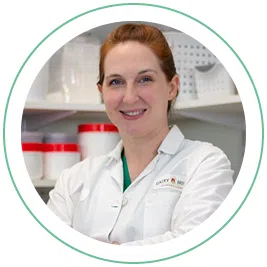The Science of Tasting the Best Chocolate Milk
Every company has its perks. At Green Field Solutions, one of ours happens to be taste testing some of the world’s best chocolate milk. In fact, as sommeliers are to wine and cicerones are to beer, so are we to chocolate milk. We’ve even got certificates hanging on the lunchroom refrigerators to prove it.

So, what does it take to reach such palatable echelons? It’s part nature, part nurture. Meaning, you can learn everything you need to know in taste bud bootcamp, but biology plays a big role, too. Everything from age, genetics, even tastebud density effect your ability to taste. The learned aspects, however, are expertly imparted in the rigorous curricula of IFPC’s Degree of Difference Method Training and Sensory Chocolate Milk Training.
While we often focus on our expertise in food waste management, Green Field Solutions belongs to a family of companies that are responsible for many aspects of the food value chain. Our sister company, International Food Products Corp (IFPC), is a global ingredient concierge. Its Ingredient Technology & Applications team formulates food and beverage products — like chocolate milk — that taste good, meet various nutritional requirements and follow certification guidelines.
Q&A WITH A FOOD SCIENTIST
IFPC Food Scientist and program instructor, Emily O’Chiu, talks about sensory testing in this edition of Q&A With a Scientist. Additionally, several recent graduates, who are now certified chocolate milk tasting aficionados, share their experiences taking the class.
Why are taste testers important to product development?
Sensory testing is an integral part of food product development as it is the scientific method of measuring and recording the subjective experience of eating a food. IFPC manufactures a wide range of products, but our Chocolate Dairy Powder business (the dry blends we sell to the dairy industry to make chocolate milk) was the target for this new training program.

Who can be a sensory panelist?
Our program relies on having two separate groups of panelists. A larger group of 56 people are general panelists. They do not need special training other than a brief orientation because they represent a general consumer. We bring them in when we need to determine if two different samples are noticeably different to a regular person. Then, there is a smaller group of people who have a more sensitive palette. These people can learn to be chocolate milk panelists.
What do taste testing trainees learn?
In March (2024), 27 IFPC and GFS employees participated in additional training to become chocolate milk panelists. The training focuses on naming and identifying the different colors and flavors found in chocolate milk, using a method called, degree of difference. This group is not only able to identify two chocolate milks as being a close match, they are also able to determine in what subtle ways they are different. For example, the panel results might show that one chocolate milk has slightly more vanilla notes or slightly less salt than a comparison milk.
What is the job of a food scientist?
Food scientists are involved in every step of food production from researching and testing new ingredients, to formulating new foods, ensuring the safety and quality of manufactured foods, and even some parts of packaging design. In my role, I’m always learning new things about how complex food can be, and how the many ingredients and processing conditions come together to make a food that people love. The most exciting part is seeing a food that I had a hand in creating sitting on a grocery store shelf ready for purchase.

WHAT OUR TASTE TESTERS HAVE TO SAY



“I enjoy learning new skills, and thought this would be fun. I thought it might be able to help me learn more about a food my family enjoys as well. I never realized how many different flavors exist, and I didn’t appreciate the variety of flavors and sensory attributes in chocolate milk.”
If you are wondering how you, too, can become an elite chocolate milk taste tester, well, it’s only open to employees. But we may be hiring, so check our job board on LinkedIn for open positions. Whether you are a scientist, receptionist, data analyst or any other member of the GFS or IFPC team, every employee is welcome to participate in this coveted workplace perk.

